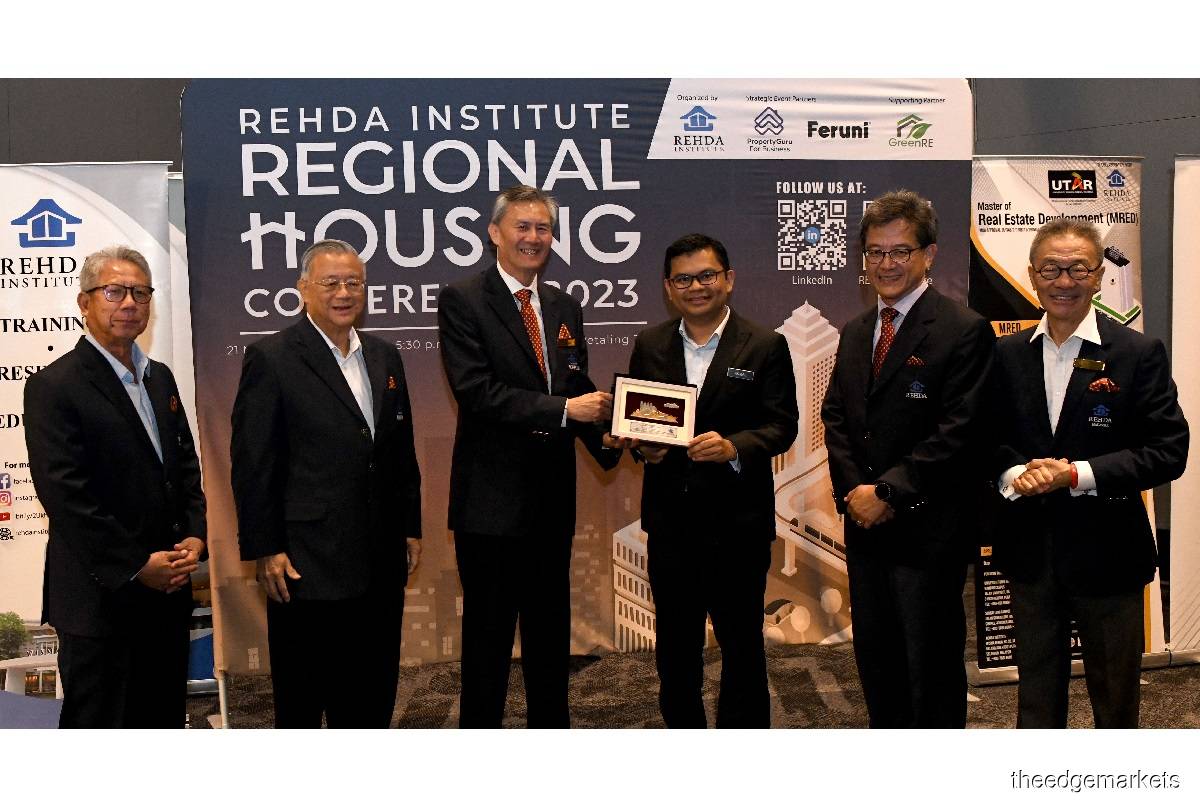Rehda Institute calls for uniform framework of developer’s financial contribution to social housing

- "Passing such housing delivery responsibilities to developers with burdensome imposition of the numerous compliance costs adds to cost of house prices, but not necessarily adding value to the final product.”
KUALA LUMPUR (March 21): Rehda Institute — the research, education and training arm of the Real Estate and Housing Developers’ Association (Rehda) — is calling for a uniform framework of financial contributions from property developers to social housing in lieu of a mandatory quota for such properties and controlled pricing.
During the Rehda Institute Regional Housing Conference 2023 on Tuesday (March 21), Rehda Institute chairman Datuk Jeffrey Ng Tiong Lip said there are authorities in different states that practise different models of financial contribution currently.
“If such models can be uniformly streamlined, this would allow the Ministry of Local Government Development (Kementerian Pembangunan Kerajaan Tempatan in Malay, or KPKT in short), with assistance from Rehda, to set up a centralised fund that is funded by the developers, to launch and deliver social housing projects with economies of scale by the public sector, which could lead to lower cost of construction if modern construction technologies are implemented,” Ng said in his speech.
He added that the uniform framework of the financial contribution will allow for greater transparency and consistency in cost management, leading to more manageable housing prices throughout the country.
Ng: Over-regulation adds to cost of house prices without adding value to final product
Ng said “nothing has changed” in regards to burning issues of housing unaffordability, high levels of unsold stocks including Bumiputera units, house pricing cross-subsidisation and mismatch of demand and supply, as the authorities have regulated various models for the delivery of affordable housing in Malaysia in the past decades.
“But what is the cost of such over-regulation by authorities? Passing such housing delivery responsibilities to developers with burdensome imposition of the numerous compliance costs adds to cost of house prices, but not necessarily adding value to the final product,” he said.
“The lack of transparency and consistency in policies from one authority to another, in different parts of the country, increases the cost of doing business.”
Ng asked for the government to leave the private sector to focus on market-led affordable housing projects of RM500,000 and below and other open market-priced products.
He said it is time for the government to take over the role of providing social housing, particularly to the B40 and M40 groups that require housing assistance, through its various agencies.
“Private affordable housing is heavily subsidised by the open market segment. It is unproductive and wasteful to have a huge stock of unoccupied or unsold units including Bumiputera units.
“Affordable housing quota cannot be imposed across the board in all private developments as the required ecosystem may not be present,” Ng said, adding that he hopes future affordable units will not fall under the overhang category.
He said increased costs of land, compliance, building materials, labour and other costs as well as lacklustre market have all made cross subsidies punitive to the private sector housing development.
Rehda Institute is now collaborating with various partners on the research topic of affordable housing and expects the report to be completed in 2024.
According to the National Property Information Centre (Napic) in its Property Market Report 2022 released last week, a total of 27,746 overhang units were recorded in 2022, declining by 24.7% year-on-year (y-o-y) compared with 36,863 units in 2021. Total overhang value also shrank 19.2% y-o-y to RM18.41 billion, from RM22.79 billion during the same period.
Follow Us
Follow our channels to receive property news updates 24/7 round the clock.
Telegram

Latest publications
Malaysia's Most
Loved Property App
The only property app you need. More than 200,000 sale/rent listings and daily property news.
